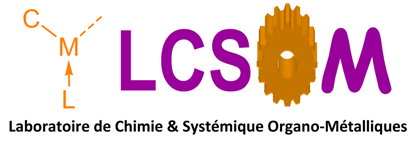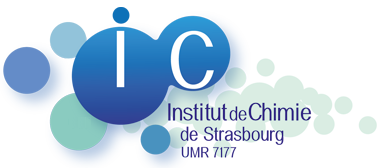
Noncovalent interactions were firstly taken into consideration by van der Waals in 1873, helping to revise the equation of state for real gases. In comparison to covalent bonds, intra- and intermolecular noncovalent interactions are in general weak and exhibit much lower energy and directionality, as reflected by the term ’’noncovalent’’. Nevertheless, in many cases these interactions can collectively play a dominant role in synthesis, catalysis and design of materials.
Currently, based on the nature of the particular elements or synthons involved in the interactions, noncovalent bonds are classified into hydrogen, aerogen, halogen, chalcogen, pnicogen, tetrel and icosagen bonds, as well as agostic, anagostic, cation-π, anion-π, n-π*, π-π stacking, metal-metal and hydrophobic interactions, etc.
As the fields of noncovalent interactions are growing intensively, several books in Wiley, Royal Society of Chemistry, Elsevier or Springer and four thematic issues on these weak forces have been published in Chemical Reviews in 1988, 1994, 2000 and 2016. The hydrogen and halogen bonds have already been recognized by IUPAC [Definition of the hydrogen bond (IUPAC Recommendations 2011) and Definition of the halogen bond (IUPAC Recommendations 2013)]. Moreover, there are international conferences/symposia on particular types of noncovalent interactions, such as The International Conference on « Horizons in Hydrogen Bond Research » (established by Prof. Lucjan Sobczyk in Poland in 1977), International Symposium on Halogen Bonding [established by Prof. Pierangelo Metrangolo and Prof. Giuseppe Resnati in Porto Cesareo (Lecce, Italy) in 2014], etc.
Thus, it is timely to establish a general/regular series of International Conferences on Noncovalent Interactions (ICNI), the first one to be held on 1-6 September 2019 in Lisbon.
Further editions within this series will be followed every two years, in odd number years (2021, 2023, etc.), thus avoiding competition with other major series of conferences, i.e., the ICOMC and ICCC, which are being held in even years (2014, 2016, 2018, etc.).
We are thankful to all International Advisory Board members of ICNI, who are well recognized scientists in this field, representing Europe, Asia, Africa and America for their support and suggestions.
Hence, on behalf of the Organizing Commission, it is our pleasure to invite you to attend the 1st International Conference on Noncovalent Interactions (ICNI) to be held in Lisbon in 2019 (September 1-6). It is a honor for us to host the first Conference of this series in Portugal. The scientific level of the conference will be provided by its attendants and thus you are cordially invited to present your best and recent scientific work orally, by poster or by poster with a flash oral presentation. The final selection of the type of presentation will have to take into account the scientific programme and facilities layout. Not only the senior researchers are welcome, but also the younger ones, encouraging the exchange of ideas among different generations.
The conference aims to highlight the role of Noncovalent Interactions in Synthesis, Catalysis, Crystal engineering, Molecular recognition, Decoration of materials, Drug delivery and design, Electrochemical imobilization, etc. including also Theoretical aspects. All approaches will be considered, from fundamental to applied ones, including discussion of new types of noncovalent interactions (aerogen, halogen, chalcogen, pnicogen, tetrel and icosagen bonds) and multidisciplinary studies.
The Conference venue is in a privileged position concerning travel requirements. Lisbon is easily reachable from any place of the world, the airport and the main train stations are located inside the town itself (this is a unique case within the European capitals) and all are well served by metro. The Conference place, at the Universidade de Lisboa campus, is also in the town and with close access to public transportation, including metro. Diverse and convenient accommodation facilities are available close to the venue, including low-cost University residences.
Attention will also be paid to the social programme, providing opportunities for mixing, visits to cultural places, excursions to sites of unique natural beauty, and for tasting the typical Portuguese cuisine and feeling the inspiration of our wines !
We’ll be most pleased to welcome you herein and do hope you will enjoy a pleasant time along all the Conference, from both scientific and social points of view.
![]() par courriel : cliquez ici
par courriel : cliquez ici![]() par téléphone : 03 68 85 15 23 (Jean-Pierre Djukic)
par téléphone : 03 68 85 15 23 (Jean-Pierre Djukic)![]() en vous rendant dans nos locaux : Université de Strasbourg, Campus Esplanade, Institut Le Bel, aile Nord, 9e étage, bureau 942b.
en vous rendant dans nos locaux : Université de Strasbourg, Campus Esplanade, Institut Le Bel, aile Nord, 9e étage, bureau 942b.
 Laboratoire de Chimie et Systémique Organo-Métalliques(Directeur Jean-Pierre Djukic)
de l'Institut de Chimie de Strasbourg (UMR 7177)
Laboratoire de Chimie et Systémique Organo-Métalliques(Directeur Jean-Pierre Djukic)
de l'Institut de Chimie de Strasbourg (UMR 7177)



